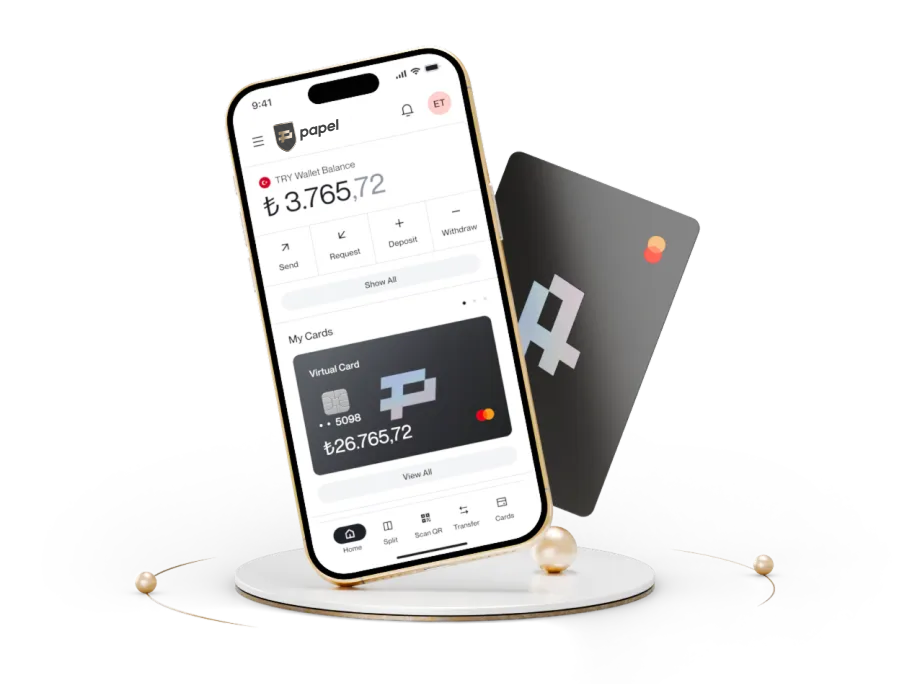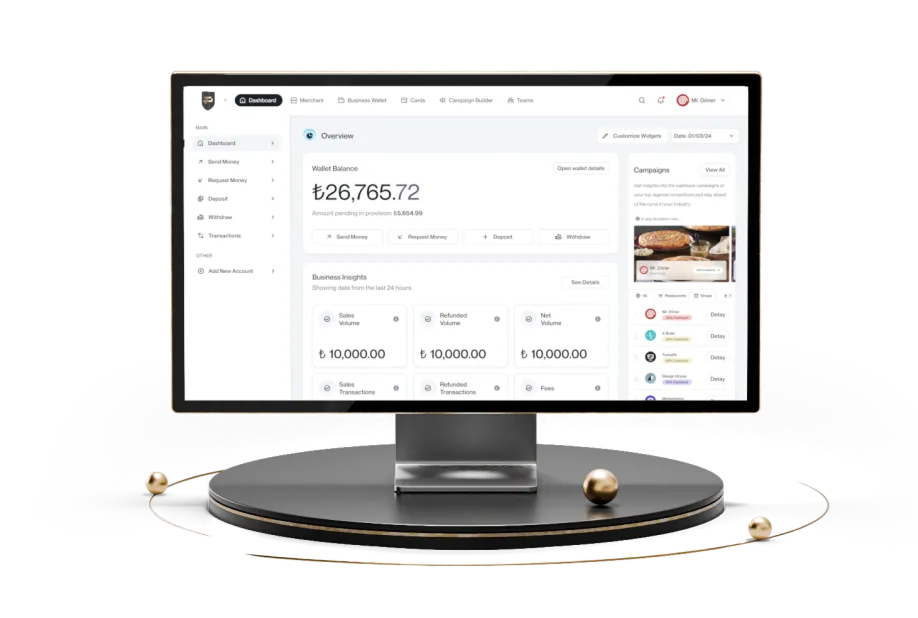Credit cards are a practical tool that makes financial management easier when used correctly. However, irrational use over time can lead to uncontrolled debt and economic difficulties. For this reason, credit card users must be well-informed about everything from the minimum payment amount to debt management. In this Papel Blog article, we cover in detail what the minimum payment amount is, how it’s calculated, the risks of making only the minimum payment, the benefits of paying more than the minimum, and tips you can apply for healthy credit card management.
What is the minimum payment amount?
The minimum payment amount is the lowest amount credit card users must pay each month. It represents a portion of the total debt indicated on the credit card statement and is calculated according to legally defined rates. The minimum amount must be paid by the due date to prevent the credit card from being classified as delinquent and to avoid late fees. However, making only the minimum payment allows interest to be applied to the remaining balance, causing your debt to grow over time. Therefore, paying the full balance whenever possible is the healthiest financial choice.
Being a conscious credit card user is essential to avoiding negative experiences. Let us help you with that. In our article "
A Guide to Credit Cards", we explain the information you need to be a conscious user. We’ve also considered the mistakes you might make when using your credit card in "
The Most Common Credit Card Mistakes and How to Fix Them", where we detail all the points you need to pay attention to.
How is the minimum payment amount calculated?
Paying the minimum payment amount, which is the required minimum of the total monthly debt on your credit card statement, on time will prevent situations like late fees and legal follow-up. According to the rates determined by the Banking Regulation and Supervision Agency (BDDK), the credit card minimum payment amount is calculated as follows:
• If your credit card limit is TRY 50,000 or less: 20% of the statement balance
• If your limit is over TRY 50,000, 40% of the statement balance
For example, if you have a credit limit of TRY 40,000 and a statement balance of TRY 10,000, the minimum payment will be TRY 2,000. If the limit is TRY 60,000, the minimum fee for the same debt would be TRY 4,000. You can easily track the minimum payment due and statement balance through your bank’s mobile app or internet banking.
What are the risks of making only the minimum payment?
Making only the minimum payment on your credit card debt may provide short-term ease but can create significant financial risks in the long run. The main adverse effects include:
Accumulating interest and a debt spiral
As long as you continue making only the minimum payment, interest is charged on the remaining balance. This causes your debt to accumulate and increase each month. For instance, if you have a debt of TRY 10,000 and you only pay TRY 2,000, interest will be applied to the remaining TRY 8,000, and this amount will accumulate over time.
Negative impact on your credit score
Repeatedly making minimum payments can indirectly lower your credit score. That’s because frequent minimum payments increase your credit utilization ratio, signaling high indebtedness. The ratio of your outstanding debt to your total credit limit is a key criterion in credit score calculations.
Reduction in card limit and usage restrictions
Banks may reduce the credit card limit of customers who consistently make only the minimum payment or turn off cash advance features as part of their risk management strategies. This could cause issues when you need urgent access to funds.
Risk of legal proceedings and collection actions
If you fail to pay the minimum amount three times within a calendar year, your credit card may be blocked for cash use. Additionally, if no payments are made for 90 days, the bank may initiate legal proceedings, which can escalate to debt collection.
What are the advantages of paying more than the minimum payment?
While paying off your entire debt is ideal, paying more than the minimum amount also offers financial benefits. These advantages include:
Saving on interest
By paying above the minimum, you reduce the remaining balance, thereby lowering the amount on which interest is charged. For example, if your statement balance is TRY 10,000 and the minimum payment is TRY 2,000, paying TRY 5,000 means that interest is only applied to the remaining TRY 3,000. Thus, your total debt increases less.
Faster debt repayment
Paying more than the minimum helps reduce your debt more quickly, decreasing financial burden and the risk of a debt spiral over the long term.
Protecting your credit score
Consistent payments above the minimum contribute to maintaining and even improving your credit score over time. This increases your chances of favorable evaluations in future credit applications.
Effective use of credit limit
High debt balance renders a large portion of your credit limit unusable. By paying more than the minimum, you decrease your balance and make your credit limit more effectively available for use.
Tips for managing your credit card
Consciously managing your credit card is crucial for your financial health. Here are some practical tips to improve your credit card usage:
Set up automatic payments.
Tracking statement cut-off and due dates are essential. By making payments on time, you can avoid late fees and credit score drops. Setting up automatic payment instructions can help prevent any adverse situations.
Categorize expenses and plan a budget.
When planning credit card expenses, consider your budget to ensure you stay within your financial limits. By categorizing your income and expenses, you can identify your needs and avoid unnecessary spending. Avoiding frivolous expenses helps you keep your debts under control.
Choose your limit based on your income.
When determining your credit card limit, consider your monthly net income. Make sure the limit does not exceed 2–4 times your net monthly income. Although a high limit may be tempting, it can lead to overspending and increase the risk of debt.
Pay above the minimum payment.
Paying only the minimum amount causes interest to accrue on the remaining debt, which increases your balance. If possible, pay off the full statement balance to avoid interest charges.
Ensure card security
Do not share your card information (card number, CVV, expiration date) with anyone, and avoid shopping on unsecured websites. For physical purchases, insert your card yourself into the POS device and keep your PIN hidden.
Regularly review your statements.
Carefully review your monthly statement, examine your spending, and identify any unauthorized transactions. If you notice any suspicious activity, contact your bank immediately.
This blog post contains general information, not legal, financial, or investment advice. The content is prepared for informational purposes only, and you are advised to seek professional advice for your specific circumstances. The expressions in this article do not carry any binding nature or responsibility and reflect only the author’s evaluation. All your decisions are your responsibility, and Papel Electronic Money and Payment Services Inc. accepts no liability for any consequences arising from them.



